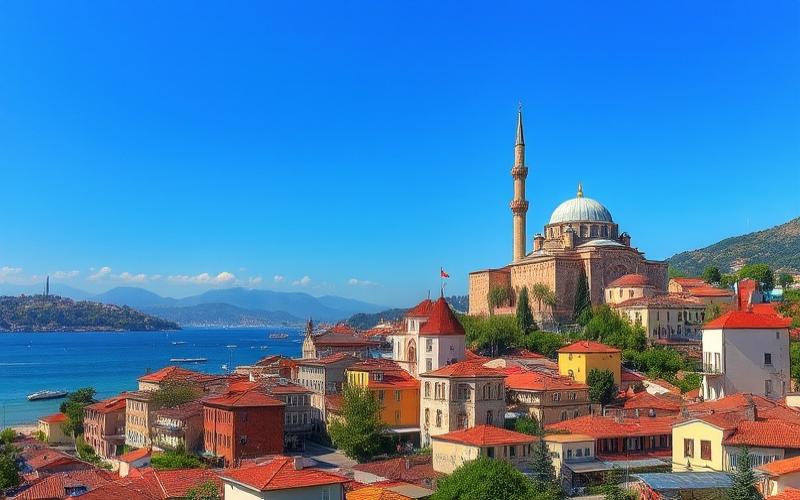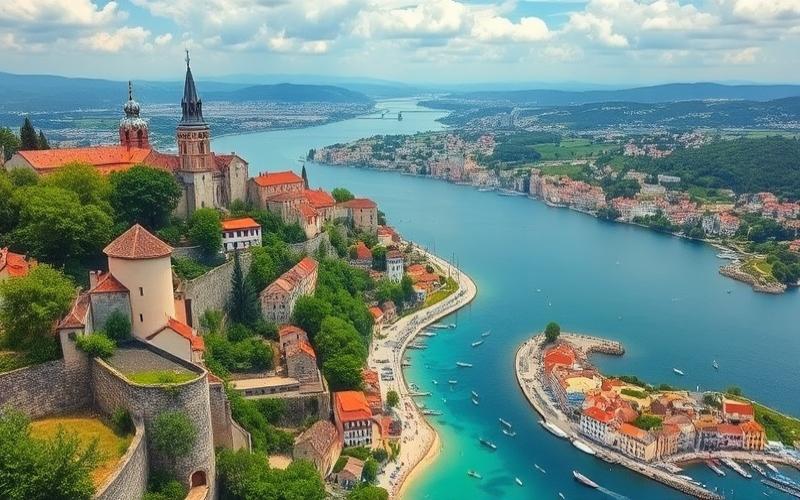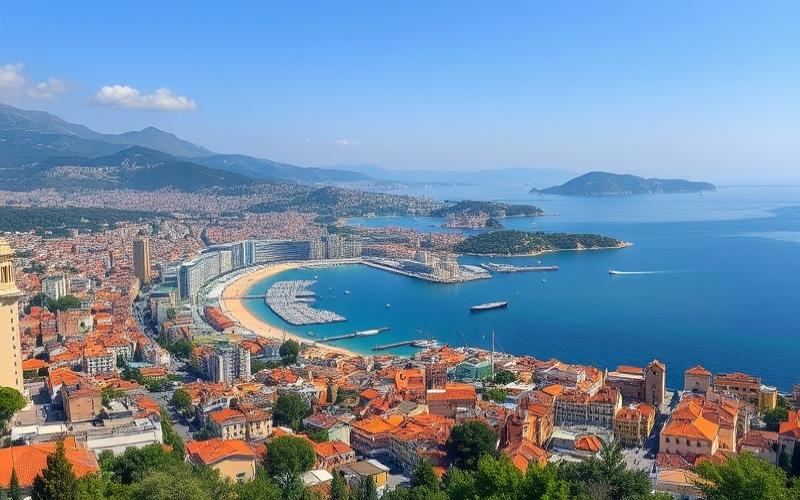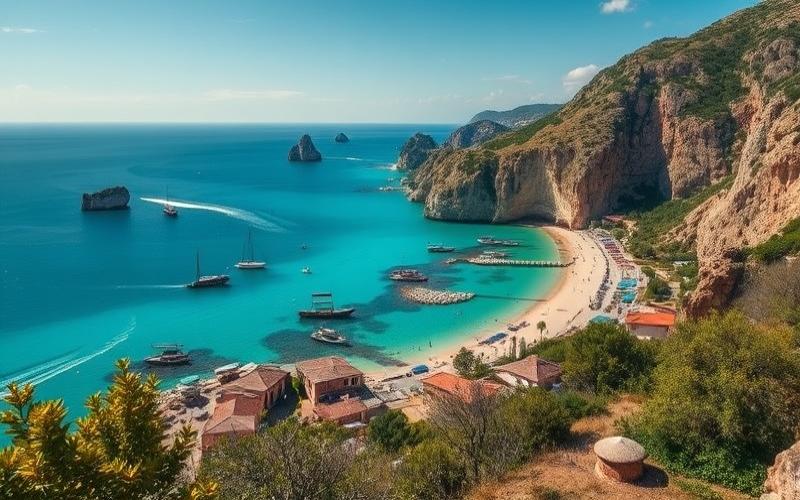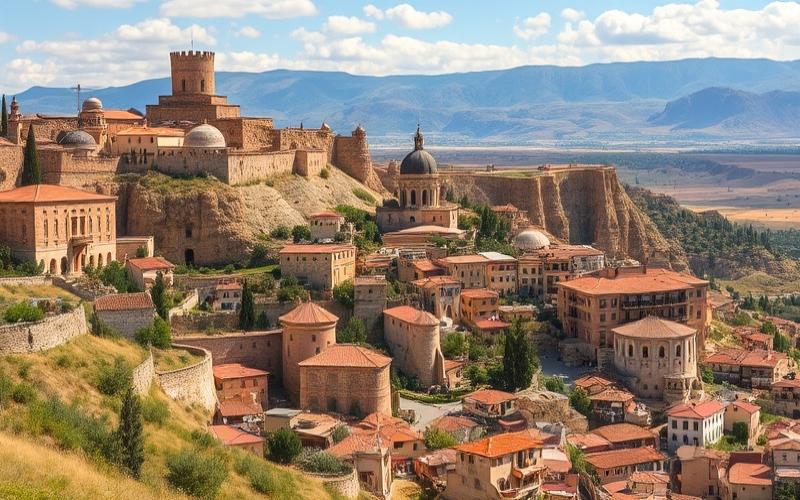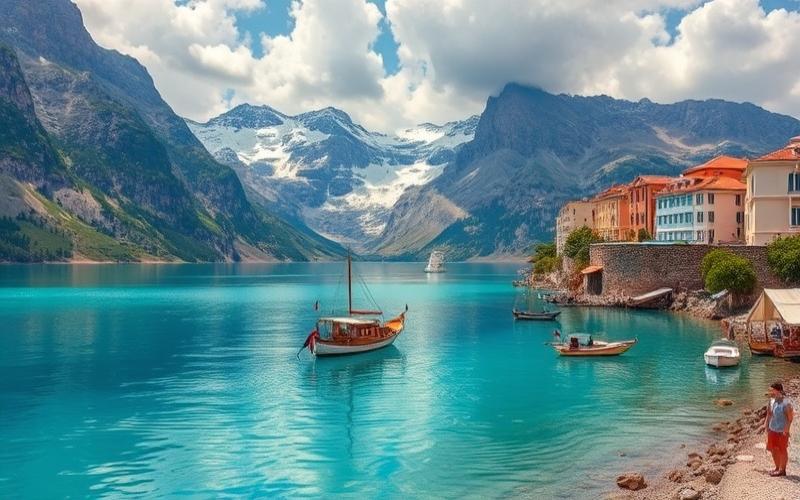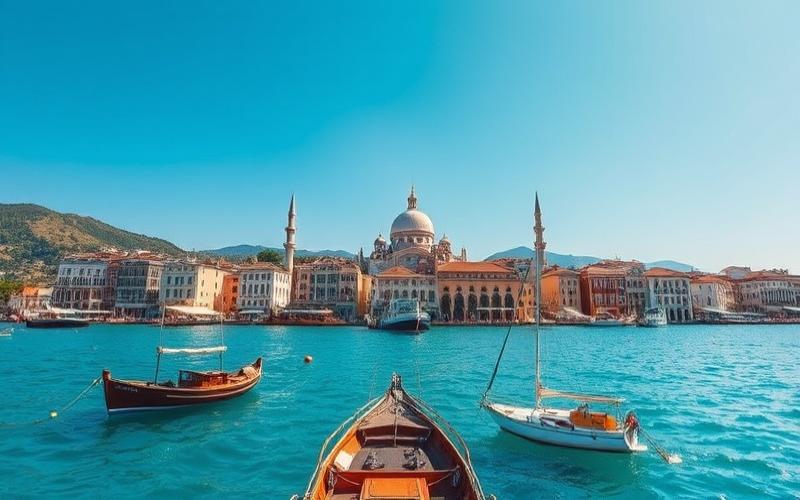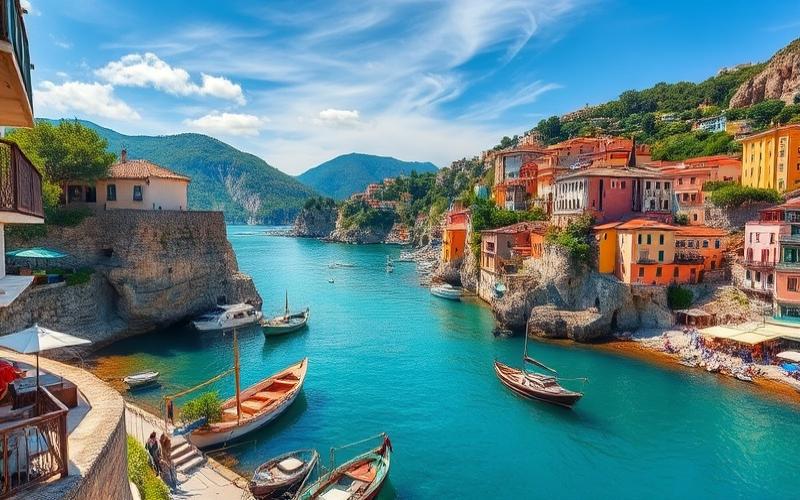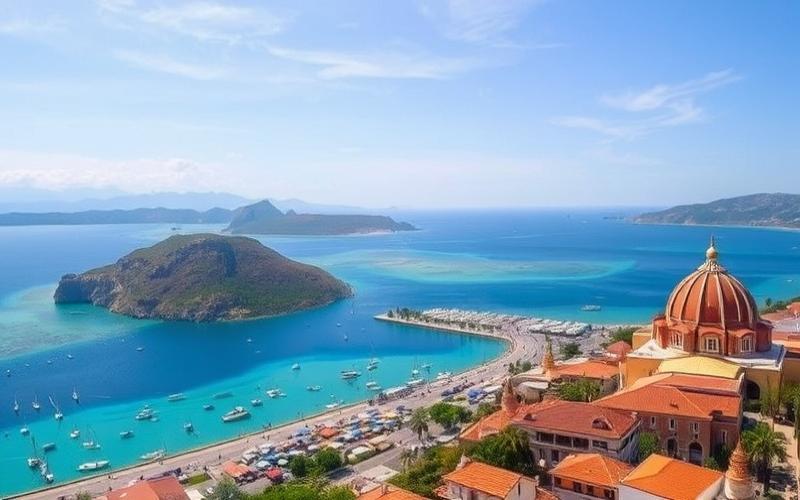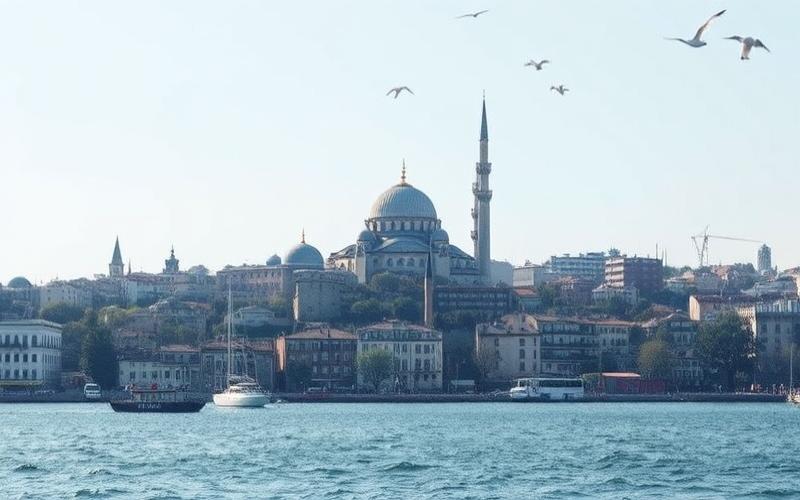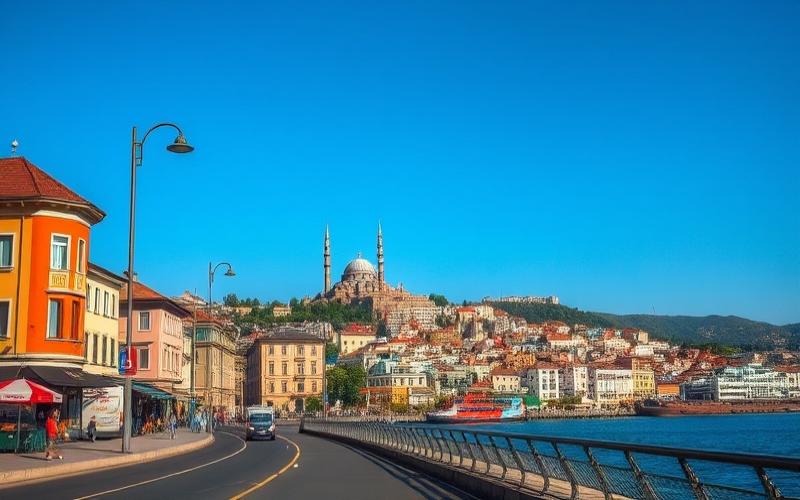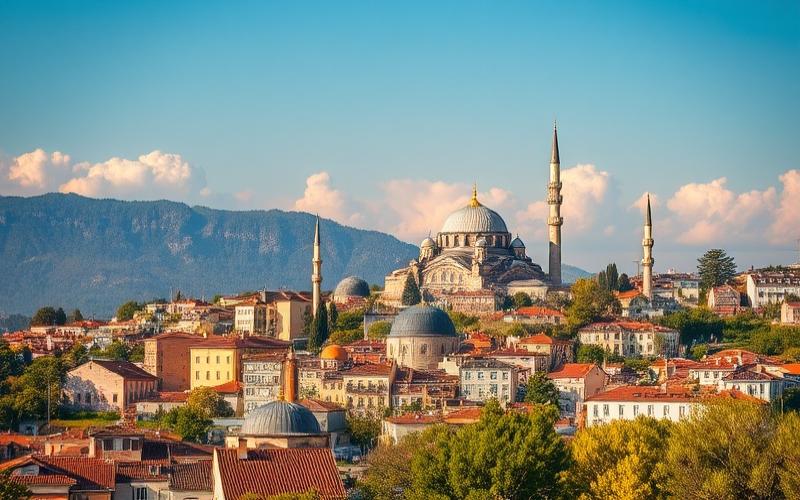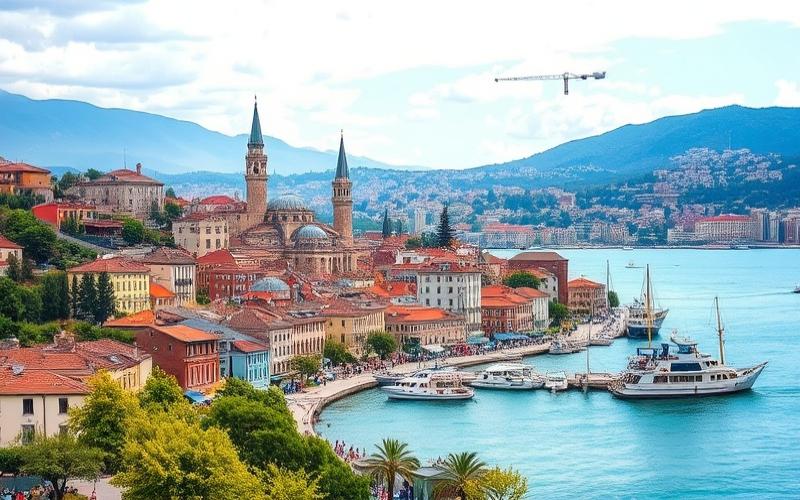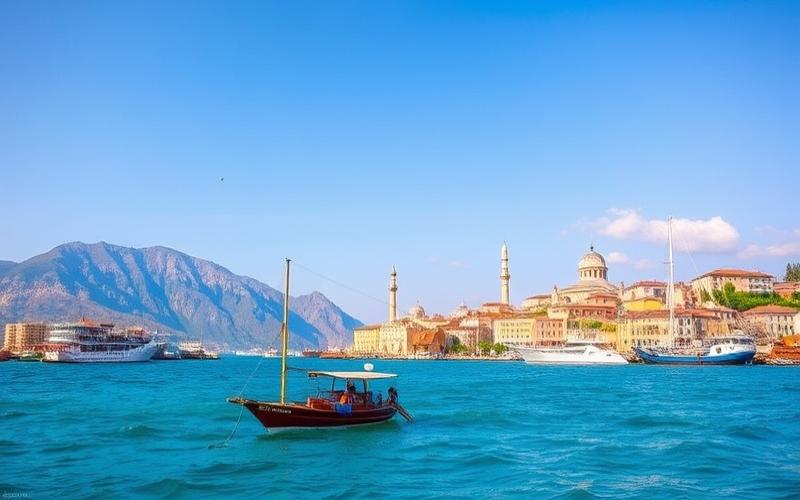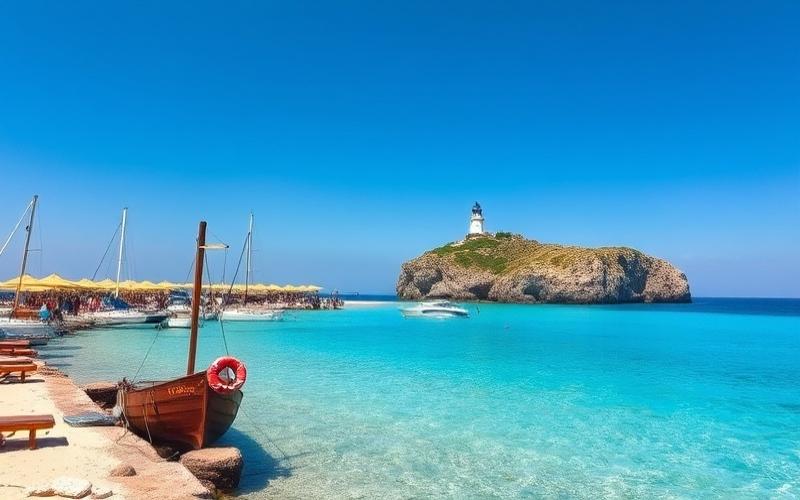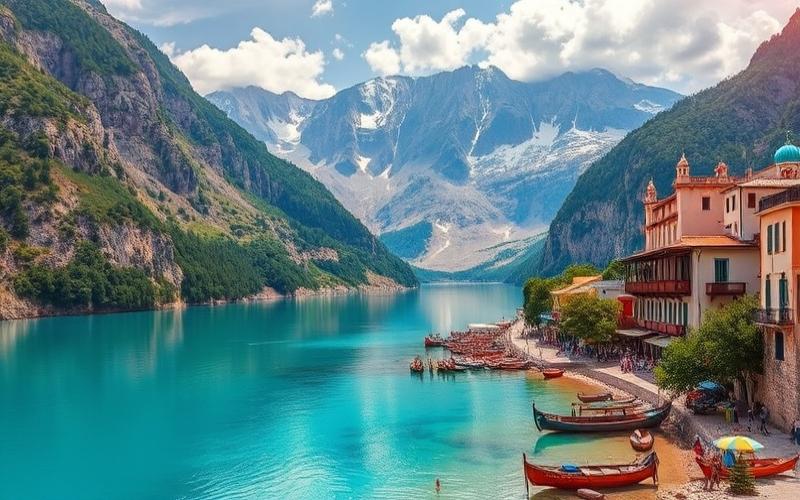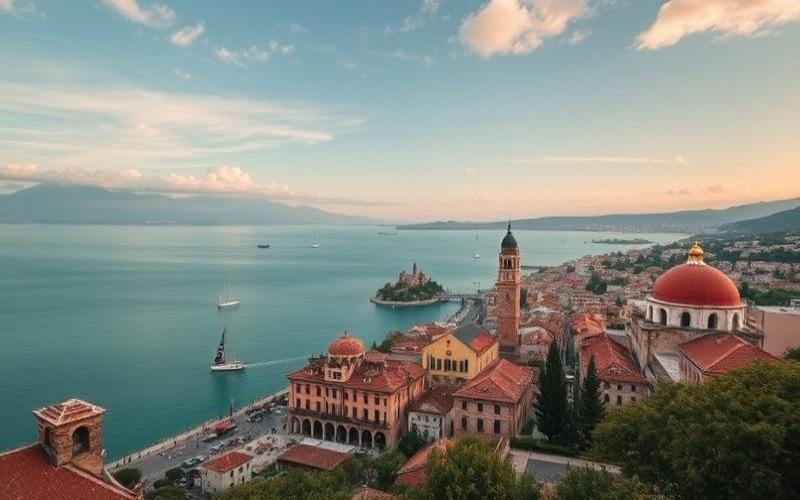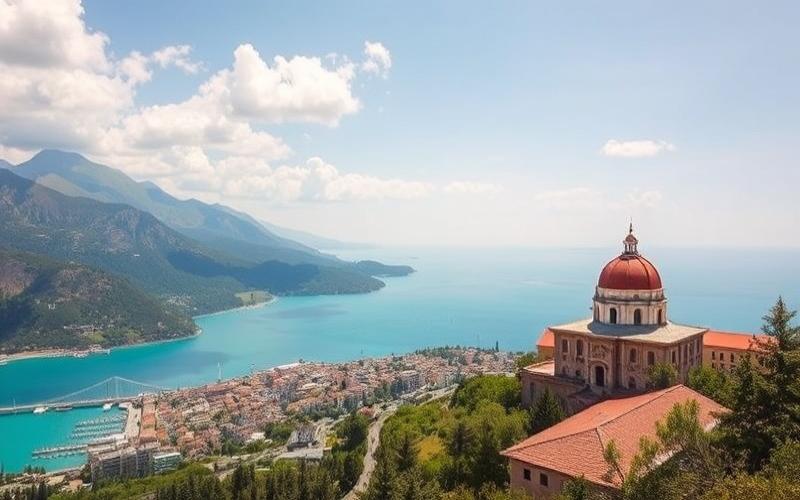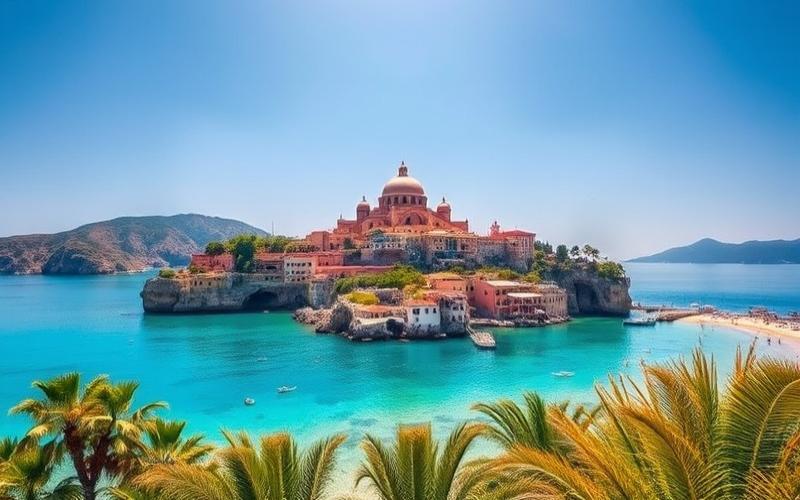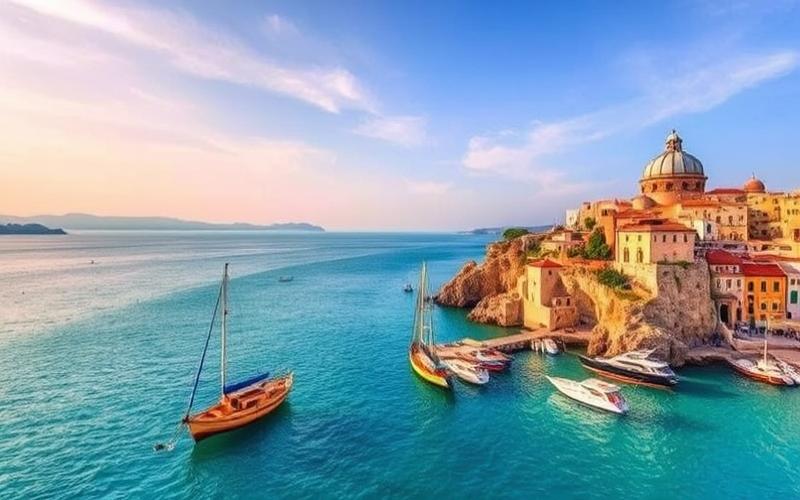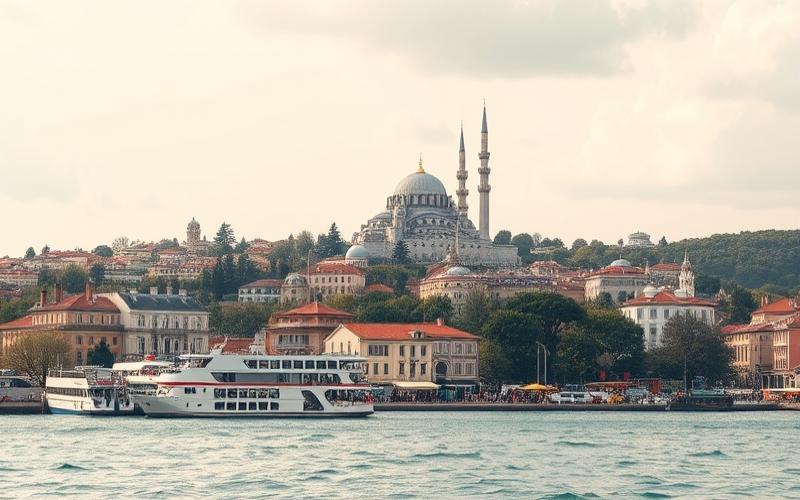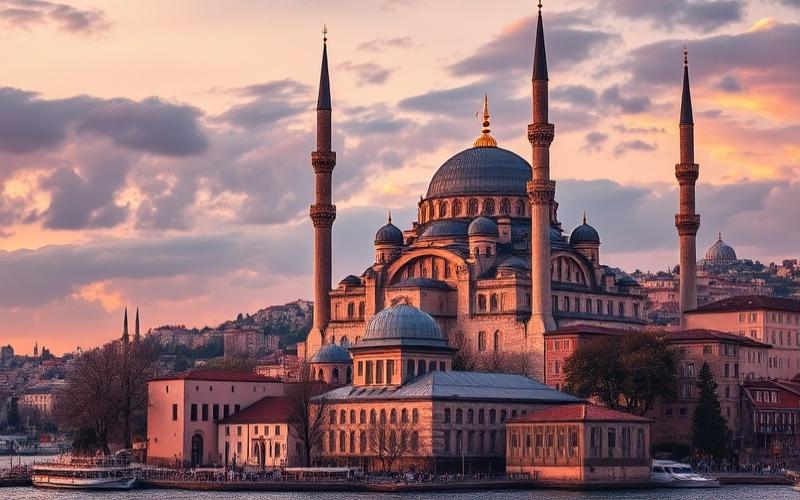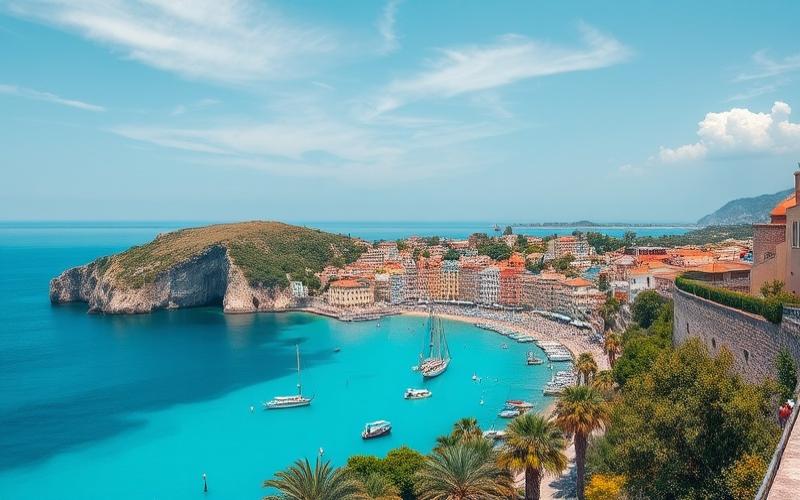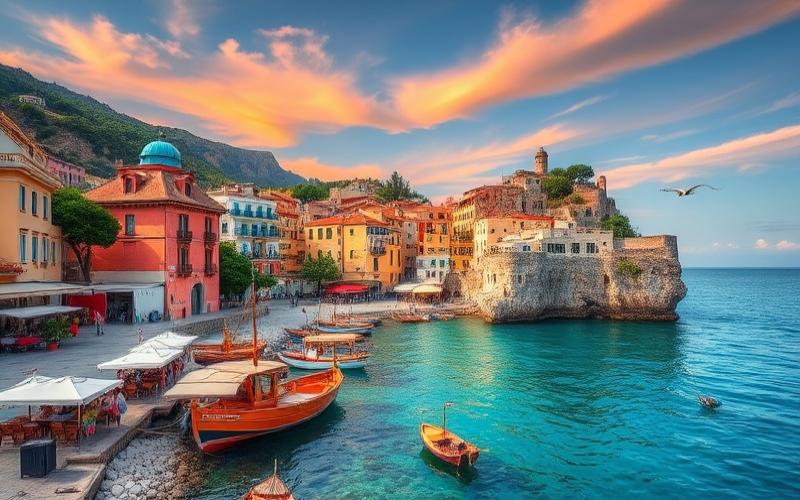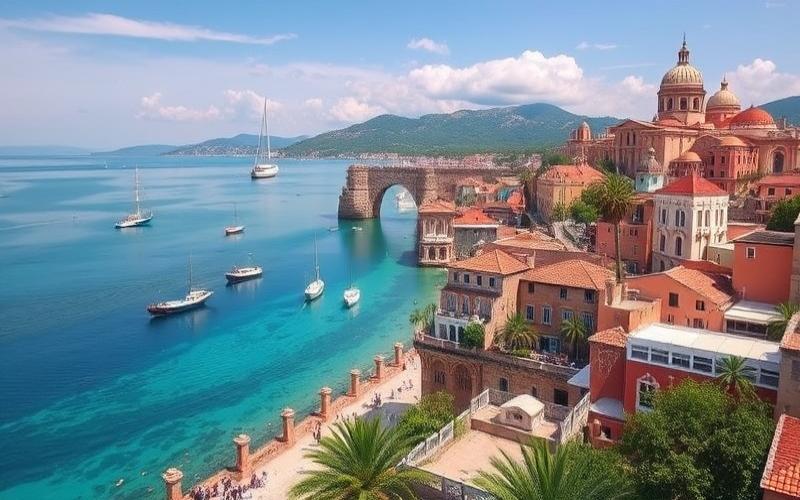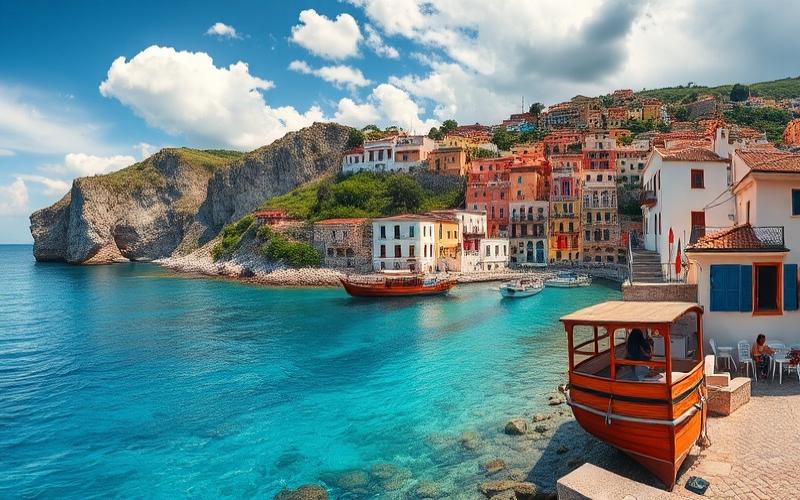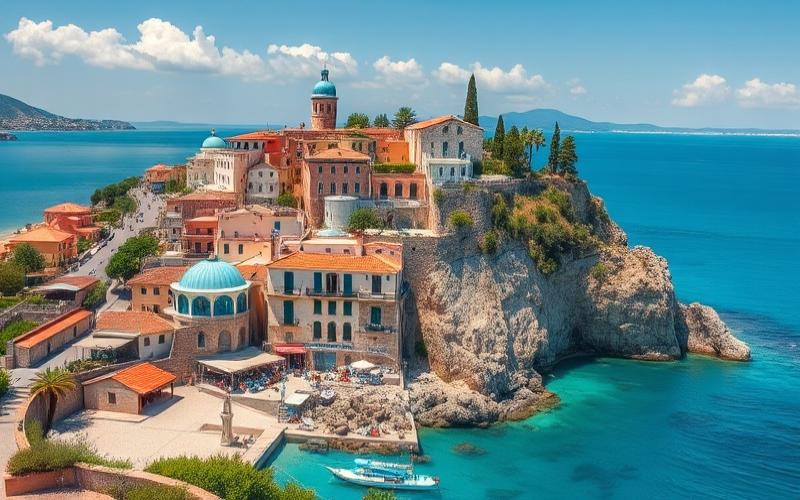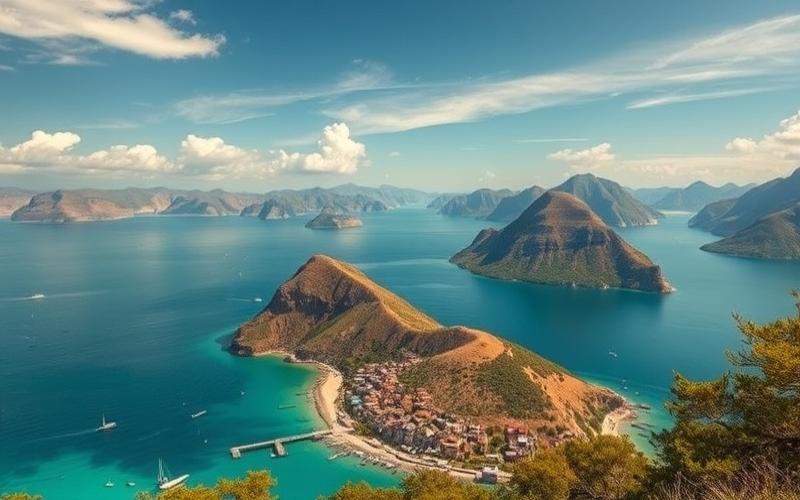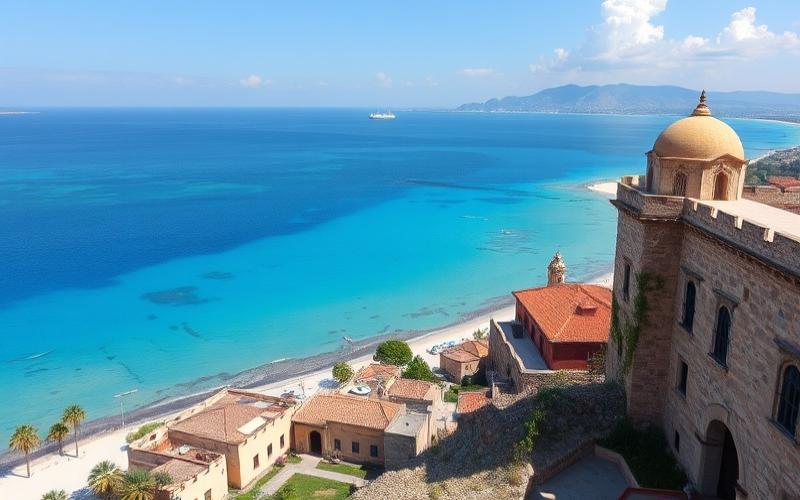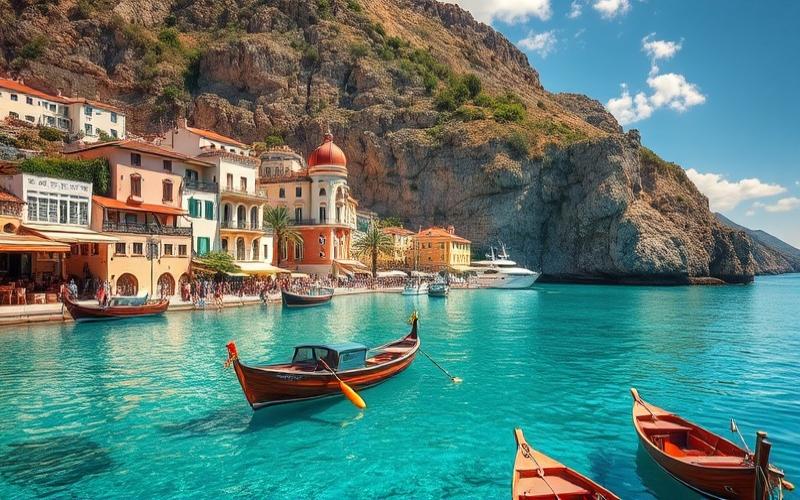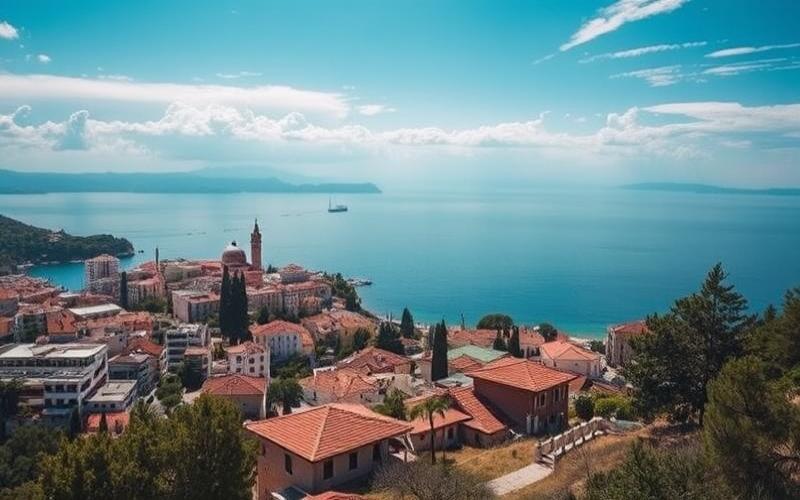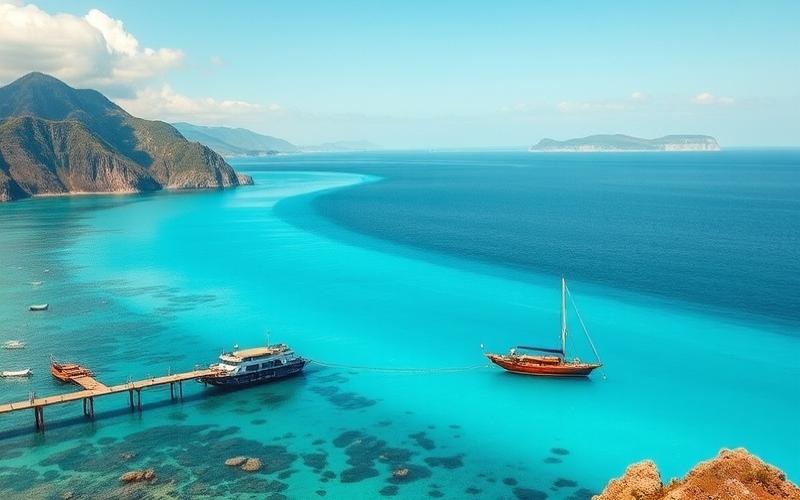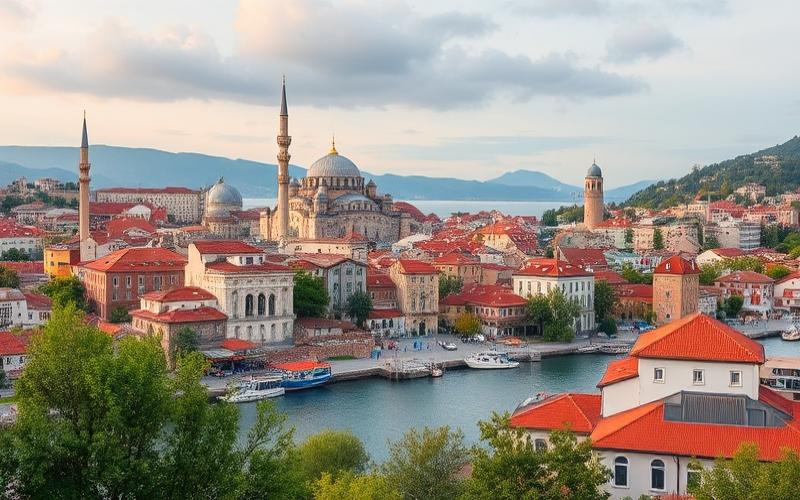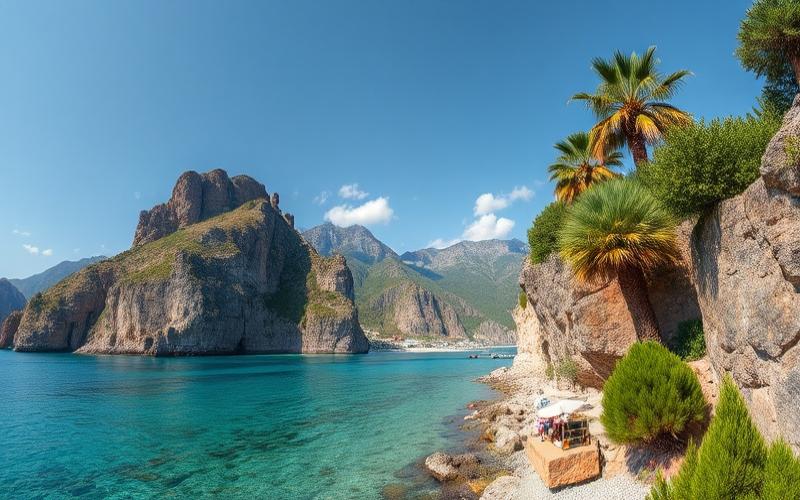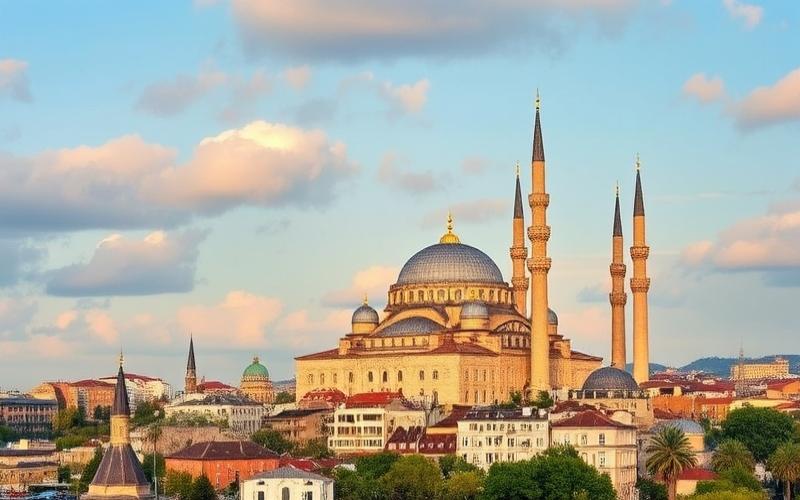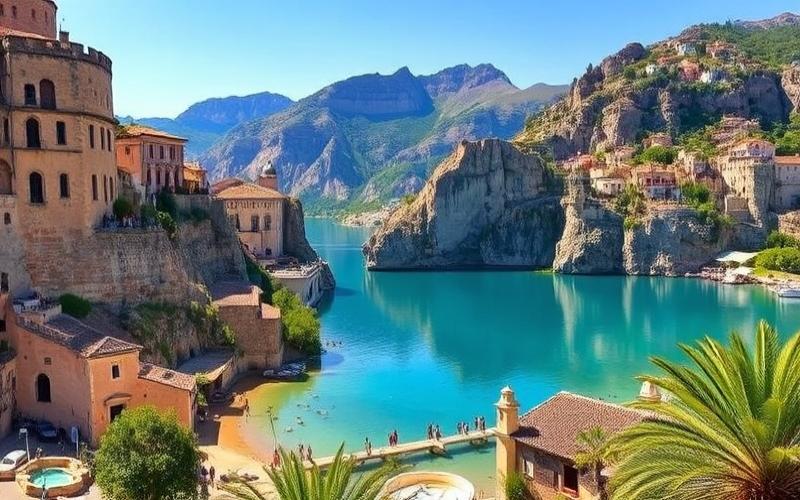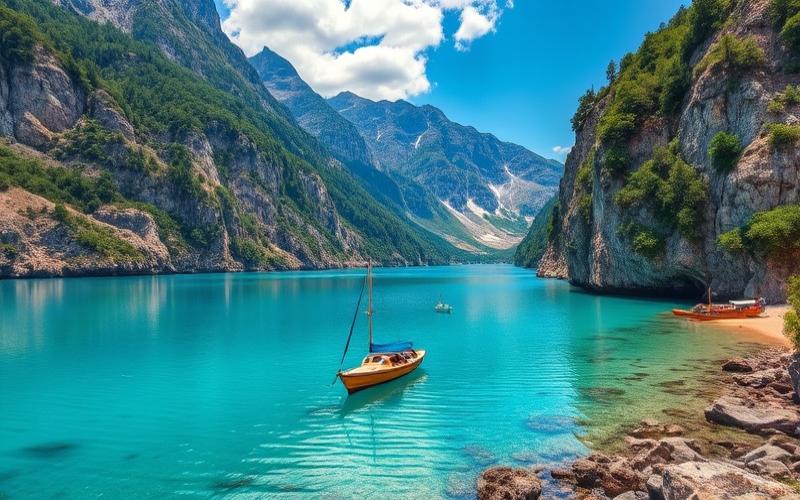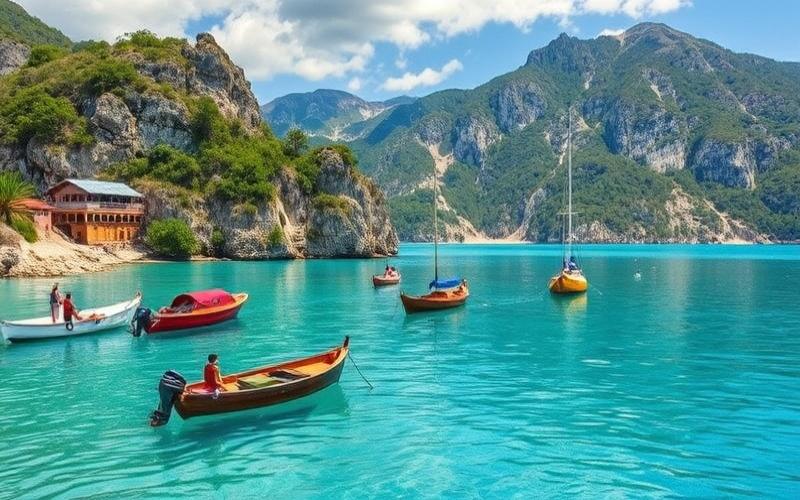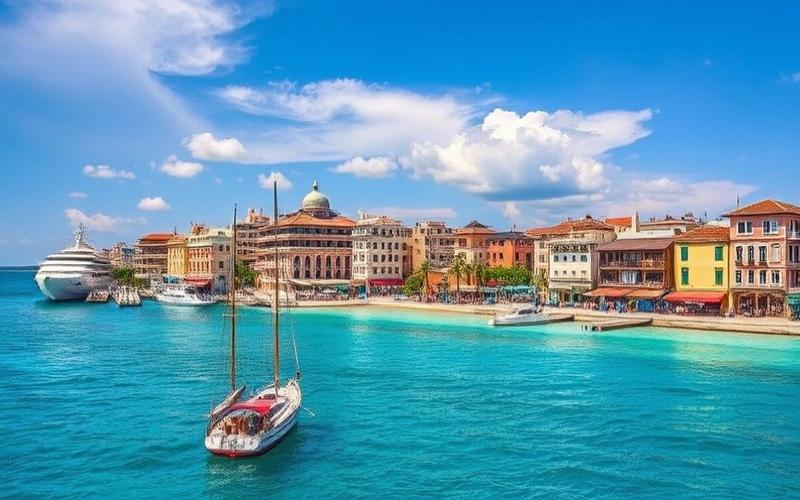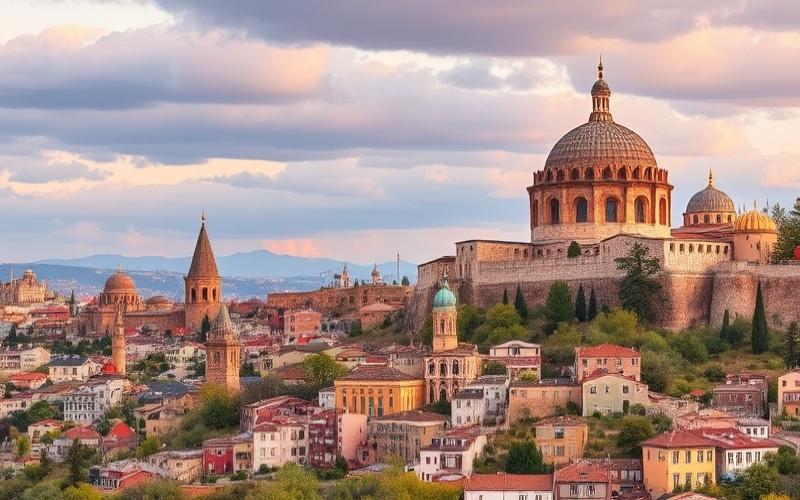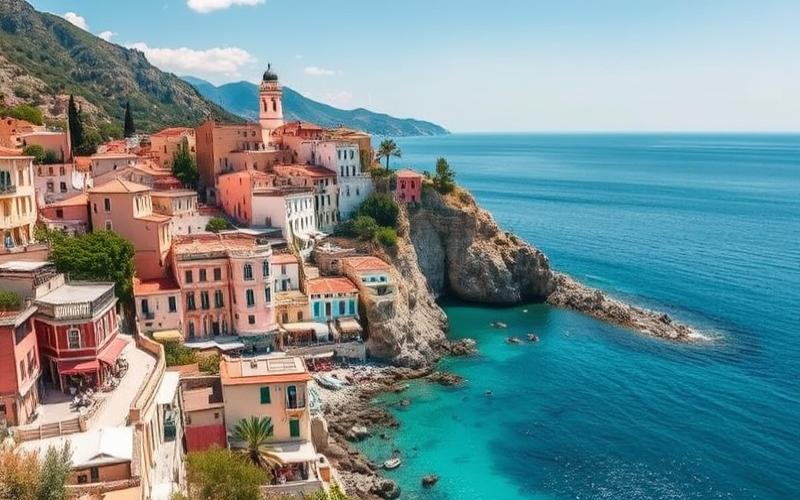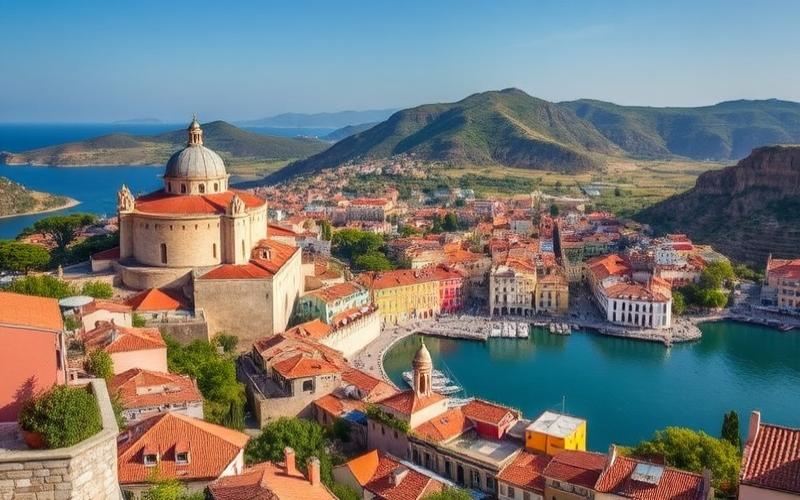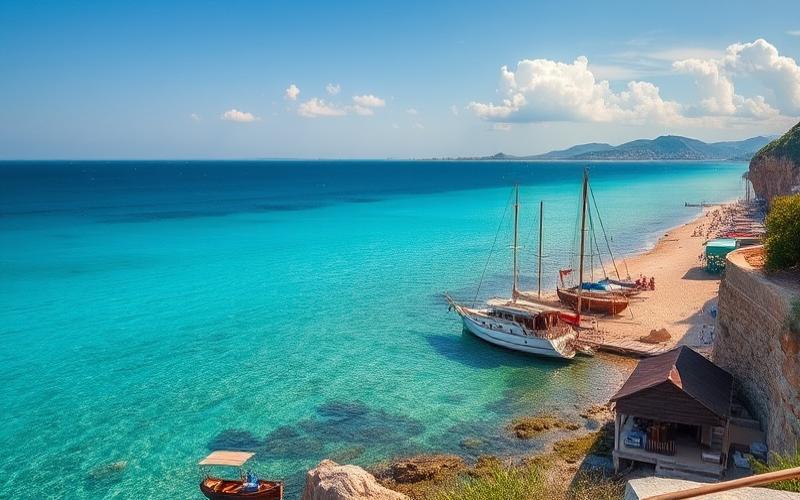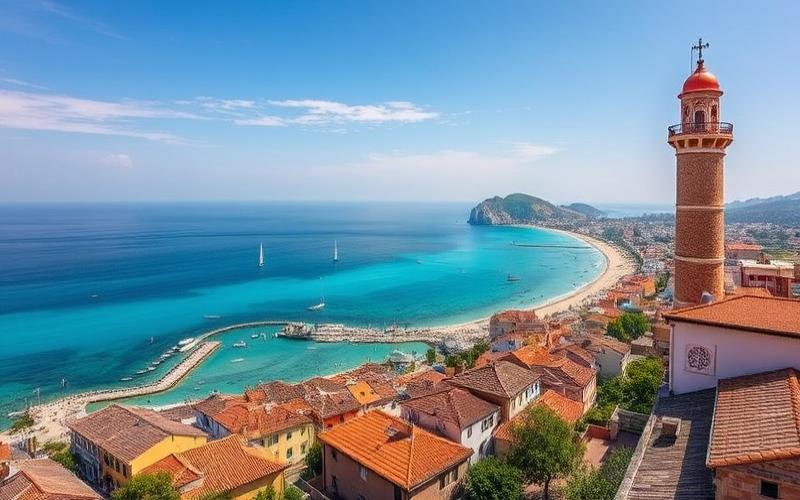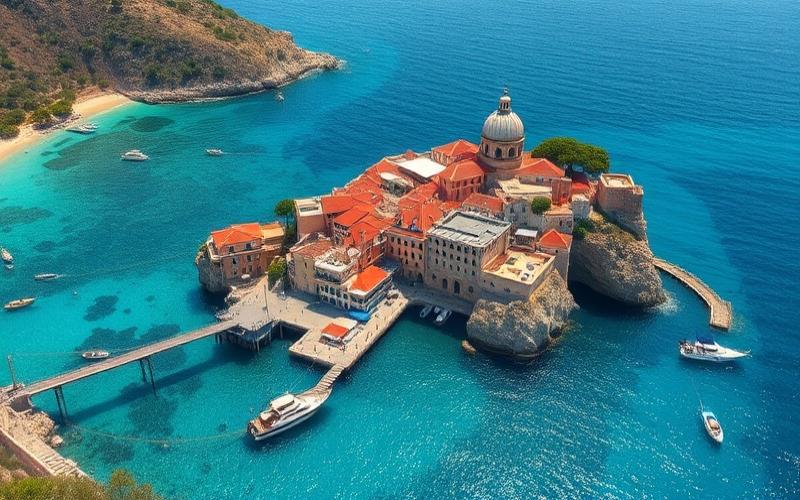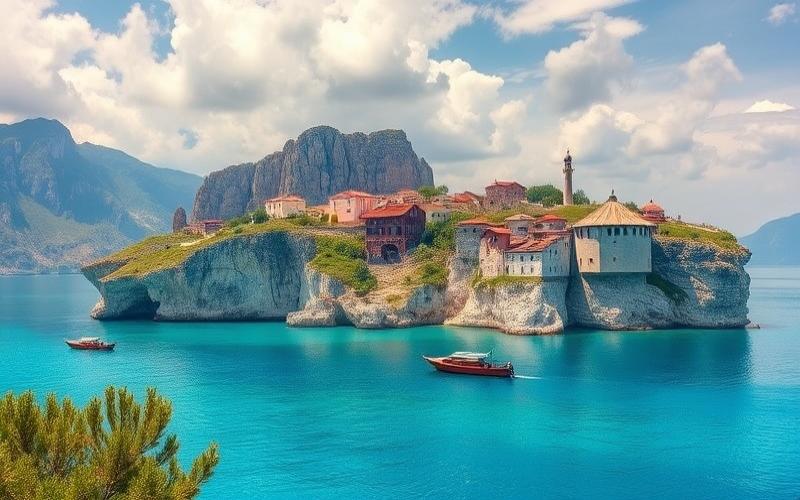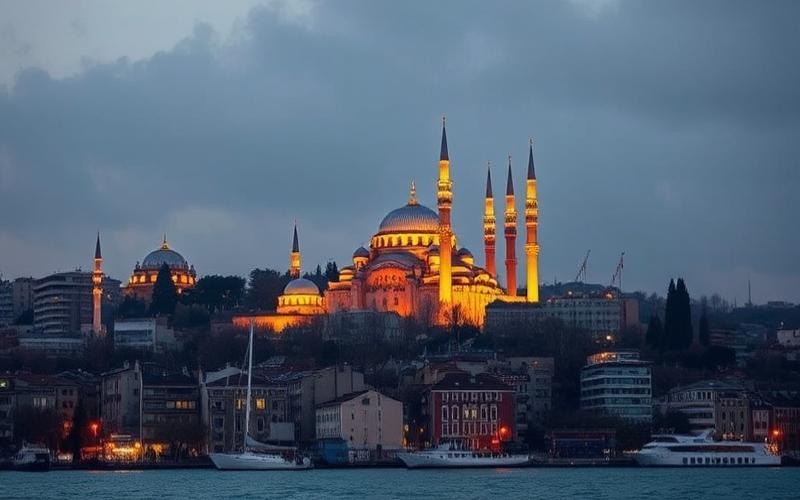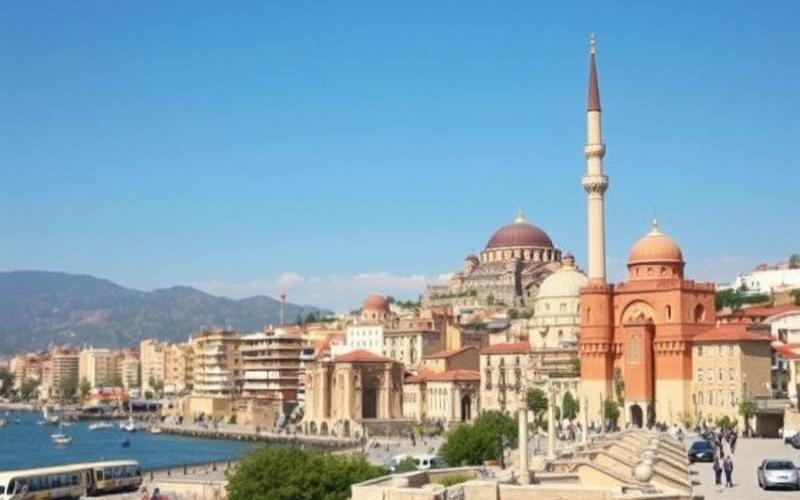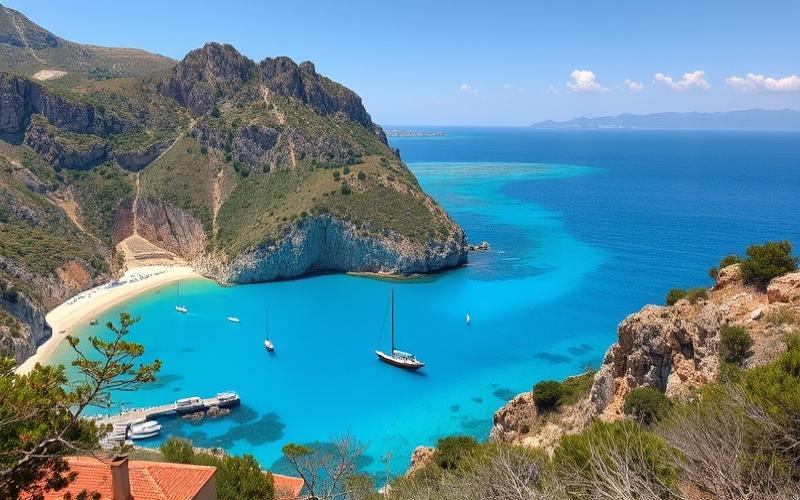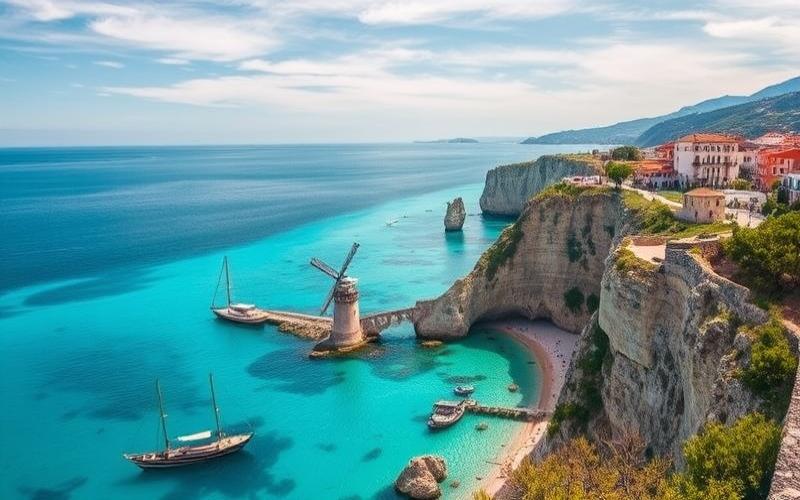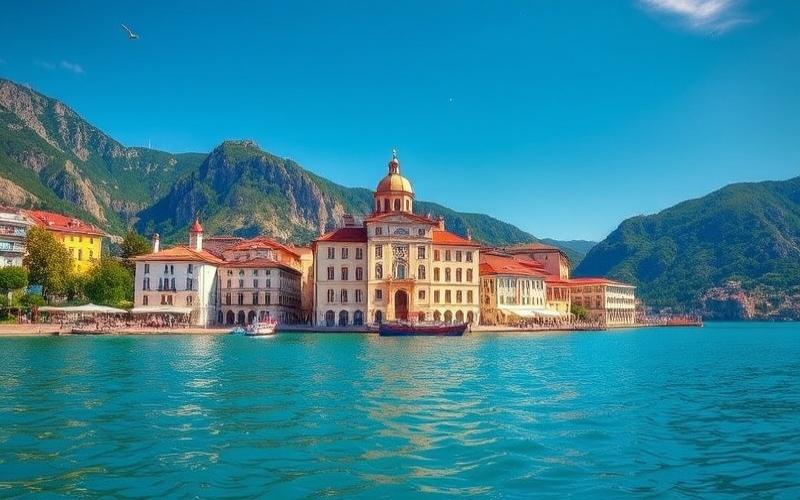
 Published on and written by Cyril Jarnias
Published on and written by Cyril Jarnias
Turkey, rich in cultural and historical heritage, has developed a dynamic and diverse sports scene that attracts an increasing number of enthusiasts and international visitors. Equipped with modern and constantly improving infrastructure, it offers a wide range of activities from football, the quintessential national sport, to various disciplines like basketball, wrestling, and water sports.
Iconic clubs, such as Galatasaray, Fenerbahçe, and Beşiktaş, fuel the sporting passion and play a key role in promoting sports across the country. Add to this the authorities’ commitment to organizing international competitions and investing in state-of-the-art sports facilities, which demonstrates a clear determination to make Turkey a must-visit destination for sports fans worldwide.
Sports Infrastructure in Turkey
| Stadium / Complex | City | Capacity | Primary Uses | Notable Events / Recent Renovations |
|---|---|---|---|---|
| Atatürk Olympic Stadium | Istanbul | 74,753 – 77,563 | National team, European finals, concerts | 2005 Champions League Final, renovations for Euro 2028/2032 |
| Nef Stadium (ex Türk Telekom) | Istanbul | 52,223 – 52,650 | Galatasaray Club, football, concerts | First retractable roof in Turkey, opened 2011 |
| Şükrü Saraçoğlu Stadium | Istanbul | 50,509 | Fenerbahçe Club, football, sporting events | Multiple renovations, Art Deco/Ottoman style |
| Vodafone Park | Istanbul | 41,903 | Beşiktaş Club, football, concerts | Opened in 2016, modern stadium |
| Yeni 4 Eylül Stadium | Sivas | 27,532 | Sivasspor Club, national matches | Recently built, selected for Euro 2028 |
| Antalya Stadium | Antalya | 32,537 | Antalyaspor Club, sporting events | Recently built, modern architecture |
| Yeni Adana Stadium | Adana | 33,543 | Adana Demirspor Club, football | Opened in 2021, among new projects |
List of Major Sports Complexes and Their Uses:
- Atatürk Olympic Stadium: Country’s main stadium, hosts major international matches, athletics events, major concerts.
- Nef Stadium: Home of Galatasaray, national and European football, international concerts.
- Şükrü Saraçoğlu: Historic Fenerbahçe stadium, renovated, renowned atmosphere.
- Vodafone Park: Modern Beşiktaş stadium, innovative architecture, concerts and shows.
- Antalya Stadium, Yeni Adana, Yeni 4 Eylül: Recent infrastructures, selected for international competitions, provincial modernization.
Renovations and New Projects:
Many stadiums have been renovated or built since 2010 to meet UEFA standards and ambitions to host major competitions (Euro 2028/2032).
Renovations include modernizing facilities, improving accessibility, adding retractable roofs and VIP spaces.
New regional stadiums (Adana, Sivas, Antalya, Konya) promote the spread of professional sports outside Istanbul.
Public and Private Investments:
The Turkish government has heavily invested in stadium construction and renovation, in partnership with clubs and private sponsors.
The goal is to boost the local economy, attract sports tourism, and develop sports practice across the country.
Many projects are funded through public-private partnerships, ensuring modern and multifunctional infrastructure.
Public Access and Sports Initiatives:
Modern stadiums are designed to host the public during matches, but also for training, school activities, and community events.
Many municipalities offer reduced rates for youth and organize sports initiation programs.
National initiatives encourage youth sports participation, notably through the creation of local sports centers, renovation of school facilities, and promotion of local sports events.
Major clubs offer football academies and camps open to youth, fostering talent detection and social inclusion.
Summary Box:
Turkey now boasts modern and varied sports infrastructure, the result of public and private investments. The main stadiums, renovated or newly built, host both international competitions and local events, while promoting access to sports for the broader public, especially youth.
Good to Know:
Turkey has top-tier sports infrastructure, with iconic stadiums like Türk Telekom Arena in Istanbul, with a capacity of 52,223, primarily used for football. The Vodafone Park renovation project, completed in 2016, transformed Beşiktaş Arena into a modern 41,903-seat stadium. Ankara has seen the emergence of Eryaman Stadium and recent development of sports complexes like Konya Sports and Convention Center. The Turkish government, in partnership with private investors, injects significant funds to modernize sports facilities, thereby strengthening the role of sports in the country’s social and economic landscape. These investments include initiatives encouraging public access, with programs aimed at integrating youth into sports, such as subsidies for using these facilities. These efforts help position Turkey as a major regional player in hosting international sports events, while boosting local participation.
Popular Sports Clubs and Their Impact
The most iconic sports clubs in Turkey are Galatasaray, Fenerbahçe, and Beşiktaş, known as the “Big Three.” They embody the history, passion, and cultural impact of Turkish sports.
| Club | Year Founded | National Titles (Süper Lig) | Major International Trophies |
|---|---|---|---|
| Galatasaray | 1905 | 25 | UEFA Cup & Super Cup (2000) |
| Fenerbahçe | 1907 | 19 to 28* | Best performances in C1/C3 |
| Beşiktaş | 1903 | 18 | Champions League Quarter-finalist |
*The exact number varies based on historical criteria, with some earlier titles counted differently.
- Galatasaray is the only Turkish club to have won a European competition (UEFA Cup and Super Cup in 2000), granting it exceptional international recognition.
- Fenerbahçe stands out for its national consistency and decades-long unbeaten home record against European teams.
- Beşiktaş, the oldest, embodies resilience with its “Black Eagles” nickname, stemming from a historic undefeated season.
Key Successes:
- The “Big Three” have collectively won nearly 54 of the last championships over the past six decades.
- None have been relegated since the establishment of the modern league in 1959.
Cultural and Social Impact
- Their influence extends far beyond football: they represent different Istanbul neighborhoods, symbolize various social classes, and fuel legendary rivalries like that between Galatasaray and Fenerbahçe (“Intercontinental Derby”).
- Nearly 90% of Turkish supporters identify with one of these three clubs; their popularity shapes the national sports culture.
List of Social Effects:
- Active promotion of sports among youth through their academies
- Regular organization of local charity events
- Creation of public spaces dedicated to sports in their neighborhoods
Infrastructure Development
These clubs play a driving role in modernizing the sports landscape:
- Construction or renovation of modern stadiums: e.g., Vodafone Park for Beşiktaş (2016)
- Continuous investments in regional training centers
- Collaboration with municipalities to improve publicly accessible facilities
Economic Effects & Social Cohesion
Economic impacts are notable:
List of Economic Impacts:
- Direct job generation (stadium, security, merchandising)
List on Social Cohesion:
- Strengthening community spirit around the club
- Combating exclusion through inclusive sports programs
- Boosting sports tourism during major matches (“derbies”)
International Influence & Youth
These clubs significantly contribute to Turkey’s global visibility. Galatasaray’s historic European victory remains a powerful symbol. Their influence inspires a new generation: many youth aspire to join their training centers or simply dream watching their national and international idols.
Effects on Youth:
- Inspiring role models thanks to star players
- Massive encouragement to practice various sports from elementary school
In summary, these three major clubs do not just dominate national football: they structure an entire Turkish sports culture, energize local/regional infrastructure, and foster social cohesion as well as international openness.
Good to Know:
Football clubs like Galatasaray, Fenerbahçe, and Beşiktaş are not only pillars of competition in Turkey but also major vectors of development and solidarity within their communities. With a history rich in national and sometimes European successes, these clubs have played a crucial role in building modern infrastructure, attracting young talents, and fostering the growth of Turkish sports culture. Their impact extends beyond the stadiums, significantly contributing to the local economy through job creation and sports tourism, while promoting cohesion and enthusiasm through social programs. These renowned clubs regularly shine on the international stage, enhancing Turkey’s visibility, and inspire youth through educational and sports initiatives, participating in the overall dynamic of promoting sports across the country.
The Role of Expatriates in Turkish Sports Life
Expatriates play a key role in transforming sports life in Turkey, through strengthening local clubs, introducing new disciplines, and elevating performance levels.
Impact on Local Sports Clubs
- Expatriates bring technical expertise and different training methods that help professionalize local structures.
- Their presence often attracts more sponsors and audiences, improving the clubs’ economic situation.
Introduction or Development of New Disciplines
- Some expatriates have introduced or popularized sports less known locally (e.g., rugby or certain martial arts).
- They share their sports culture: innovative training methodologies, organization of international events, or creation of specialized sports schools.
- Notable example: Inane Gurbuz, French karate champion based in Turkey, contributes to the local karate scene through his titles and pedagogical involvement.
Improvement of Existing Performances
Technical contributions translate into a general level increase in several team sports like professional football, where regular integration of foreign players elevates national competitiveness.
| Discipline | Notable Expatriate Examples | Observed Effects |
|---|---|---|
| Football | Numerous Brazilian players | Increase in league levels |
| Karate | Inane Gurbuz | Technical diffusion & medals |
| Basketball | American coaches | New strategies & titles |
Integration into Local Teams
- Expatriates are typically integrated through specific social support (dedicated housing, administrative assistance).
- Initiatives like the “Sports for Solidarity” project promote social inclusion through sports; this applies to refugees as well as international athletes. These programs offer an increased sense of security and strengthen ties between foreign populations and Turkish institutions.
Promotion of a Diverse Sports Culture
Intercultural exchanges invigorate sports practices:
- Facilitated welcome for female expatriates in certain mixed disciplines;
- Multicultural sharing during sports events;
The massive arrival of expatriates has allowed Istanbul and Ankara to open up to greater inclusion – both socially and in sports – while stimulating pedagogical innovation among local educators.
Economic and Social Effects
- Growth of the local sports market (increased ticket sales, internationalized merchandising)
- Creation of direct/indirect jobs related to the sports sector
- Positive reinforcement of living together through cultural diversity within teams
Finally, these dynamics help shape a Turkish sports identity that is decidedly open to the world while consolidating its local infrastructure.
Good to Know:
Expatriates play a crucial role in developing sports life in Turkey, bringing their expertise to strengthen local clubs and introduce new sports disciplines. Their integration into Turkish teams helps improve overall performances, as illustrated by successes of athletes like Didier Drogba at Galatasaray SK, who not only strengthened the team but also elevated the profile of Turkish football internationally. Beyond their direct impact on the field, these expatriates foster a more diverse sports culture and increase fan engagement, contributing to revenues and enhancing the appeal of sports events. Socially, their presence promotes intercultural exchange and enriches the local community, offering new perspectives and broadening the horizons of young Turkish athletes.
Strategies to Promote Physical Activity in Turkey
Current Context of Physical Activity Practice in Turkey
In Turkey, physical activity practice faces major challenges, including a high sedentary rate, particularly among adults and the elderly. Urban lifestyles, the prevalence of sedentary work, and unequal access to sports infrastructure contribute to insufficient participation in regular physical activity. According to international recommendations, adults should engage in at least 150 minutes of moderate-intensity physical activity per week, but a significant portion of the Turkish population does not meet this threshold, impacting public health, notably through increased chronic diseases and inactivity-related disorders.
Main Identified Challenges:
- Growing sedentariness, especially in urban areas
- Lack of accessible infrastructure in some regions
- Low awareness of the benefits of physical activity
- Disparities between urban and rural regions
- Cultural barriers, particularly for female participation
Government Initiatives and Promotion Programs
The Turkish government has launched several initiatives to encourage physical activity:
- Health education programs in schools, aiming to instill the importance of physical activity from a young age.
- National awareness campaigns, highlighting the benefits of physical activity for disease prevention and well-being.
- Infrastructure investments: construction and renovation of stadiums, parks, bike lanes, outdoor fitness areas, and development of municipal sports centers.
- Implementation of national recommendations aligned with WHO guidelines to guide the population and health professionals.
Partnerships with Sports Clubs and NGOs
Turkey relies on a dynamic network of local sports clubs and non-governmental organizations to strengthen community participation:
- Collaboration between municipalities, sports clubs, and schools to offer free or low-cost activities.
- Support for inclusion programs through sports for youth, women, and people with disabilities.
- Joint actions with NGOs to organize neighborhood sports events, car-free days, and awareness workshops.
Influence of Major Sports Events
Hosting international sports events (Mediterranean Games, European or world championships in various disciplines, Istanbul and Antalya marathons) stimulates public interest in sports practice. These events serve as showcases, encouraging the population to get more involved and offering inspirational models for youth.
| Event | Year | Main Impact |
|---|---|---|
| Mediterranean Games | 2013 | Valorization of regional sports |
| Istanbul Marathon | Annual | Increased participation in running |
| European Championships | Various | Promotion of various disciplines |
Recommendations Inspired by International Models
To strengthen physical activity, Turkey could draw inspiration from countries like Finland or the Netherlands, which have successfully significantly increased practice through:
- Systematic integration of physical activity into daily life (active mobility: walking, cycling).
- Development of green spaces and infrastructure accessible to all.
- Encouragement of female sports participation through inclusive policies.
- Training of professionals specialized in community sports animation.
These approaches must be adapted to Turkish cultural specificities, for example by valuing traditional sports and considering regional differences and climate.
List of Practical Recommendations:
- Further develop bike lanes and pedestrian spaces in cities.
- Strengthen physical education in schools, with an emphasis on enjoyment and inclusion.
- Promote active mobility in daily commutes.
- Support the creation of neighborhood sports clubs accessible to all.
- Involve community and religious leaders to encourage practice, especially among women.
Potential Long-Term Impact
Adopting these strategies can lead to:
- A significant improvement in public health (decrease in chronic diseases, better mental health).
- Strengthening of social bonds and community cohesion.
- Reduction in healthcare costs for the state.
- An increase in the general well-being of Turkish citizens.
Investing in promoting physical activity is an essential lever for health, economic vitality, and social cohesion in Turkey.
Good to Know:
In Turkey, although awareness of the importance of physical activity has increased, challenges remain, including a lack of accessible infrastructure and low participation in rural areas. The government has implemented several initiatives, such as school physical education programs and media campaigns focused on active health. Additionally, investments in sports infrastructure aim to create more parks and sports fields, and strengthening collaborations with local sports clubs and NGOs encourages community participation. Major events like the Istanbul Marathon stimulate public interest, and Turkey could draw inspiration from countries like Finland that integrate physical activity into daily life, while adapting these strategies to its unique cultural and geographical context. These efforts, if maintained, could lead to significant improvements in public health and the general well-being of Turkish citizens in the long term.
Disclaimer: The information provided on this website is for informational purposes only and does not constitute financial, legal, or professional advice. We encourage you to consult qualified experts before making any investment, real estate, or expatriation decisions. Although we strive to maintain up-to-date and accurate information, we do not guarantee the completeness, accuracy, or timeliness of the proposed content. As investment and expatriation involve risks, we disclaim any liability for potential losses or damages arising from the use of this site. Your use of this site confirms your acceptance of these terms and your understanding of the associated risks.


